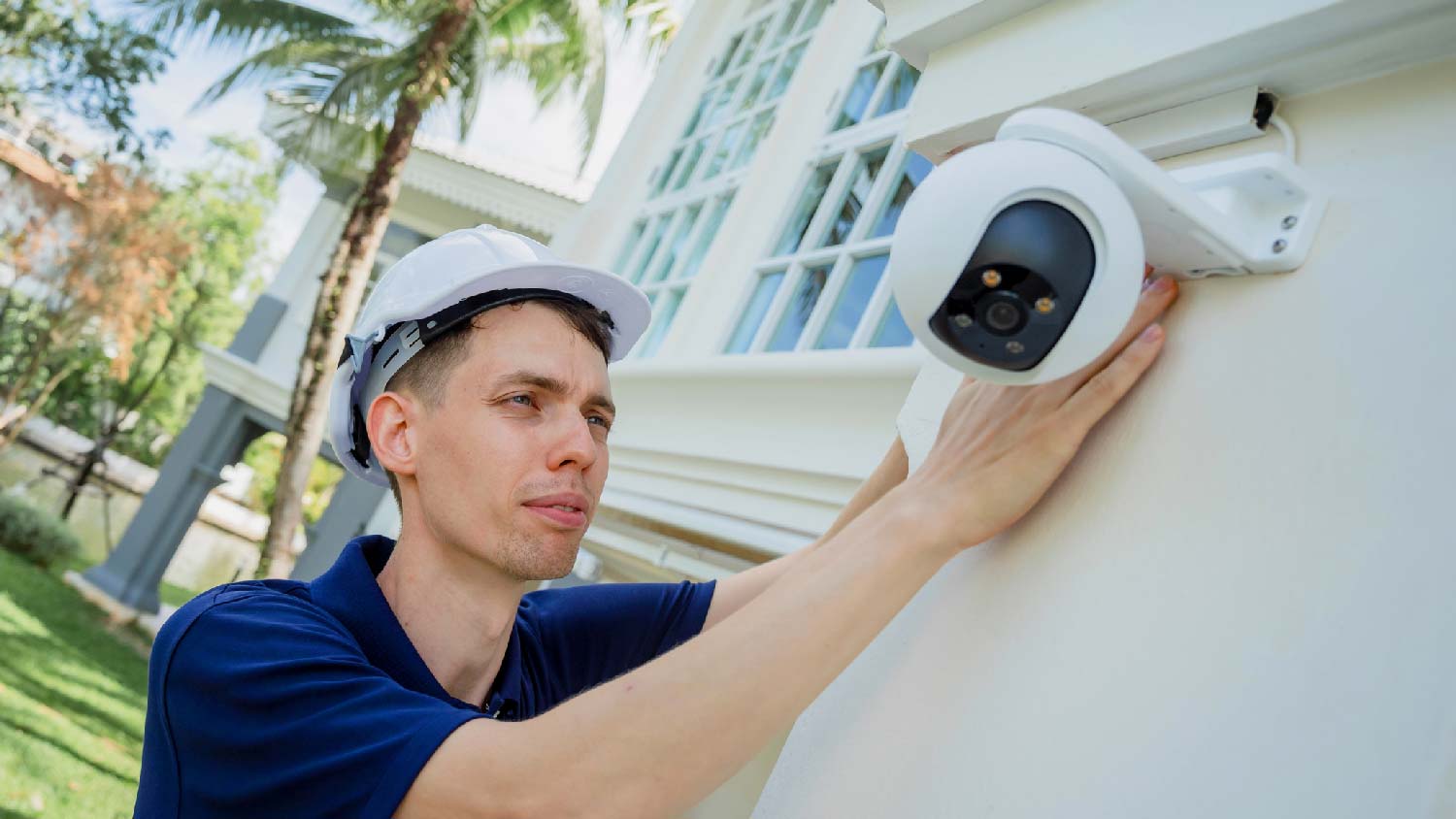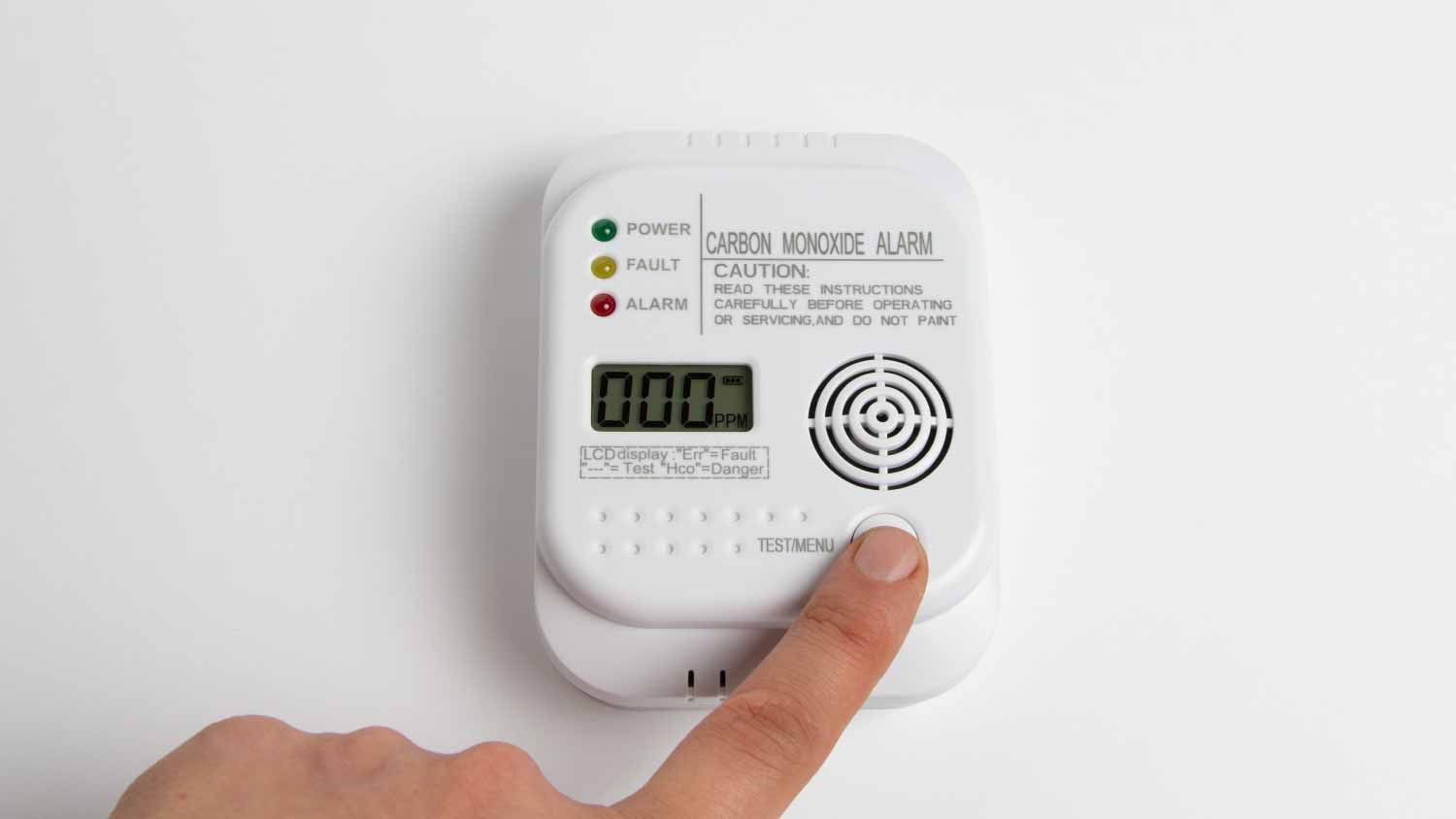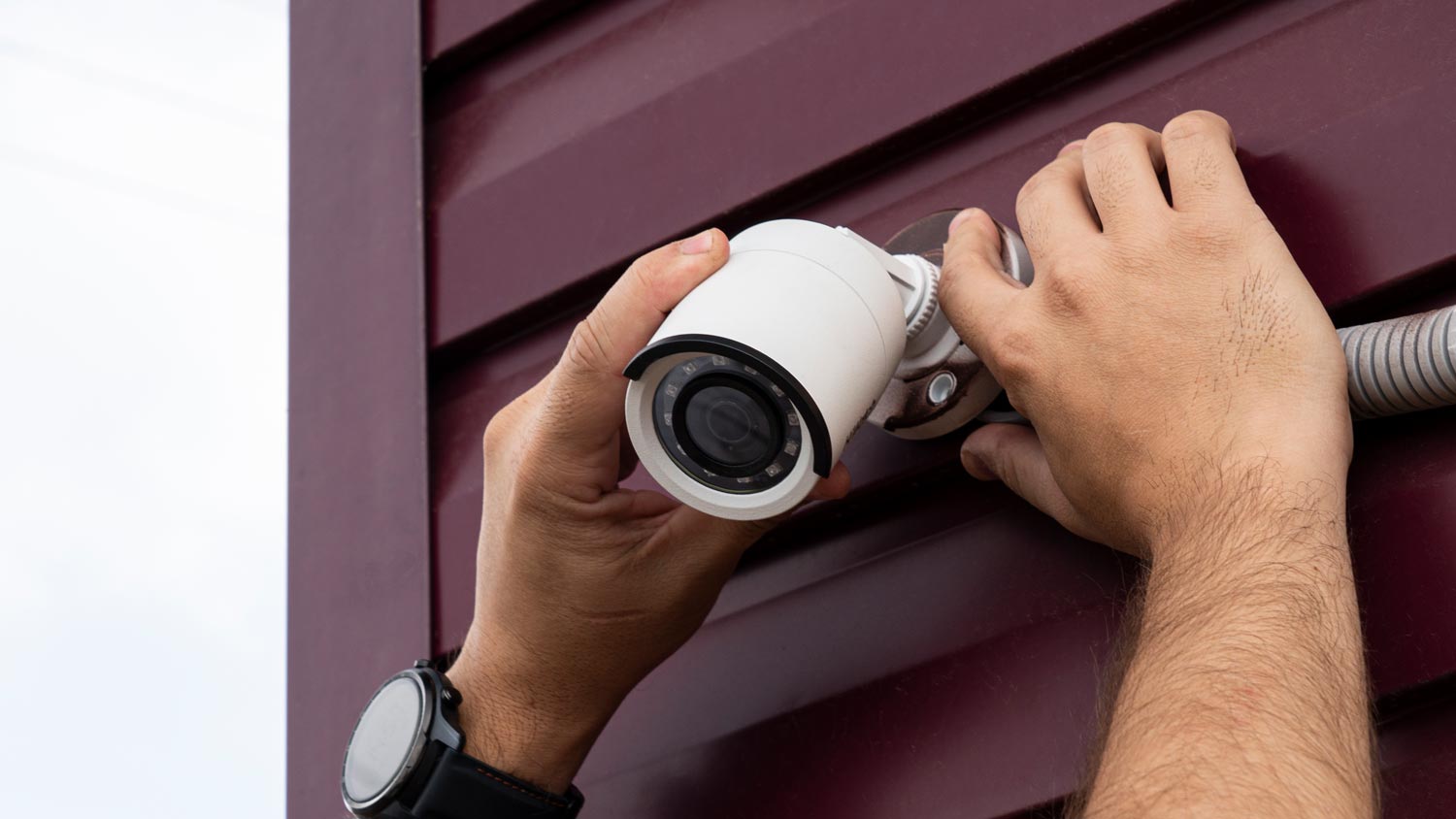Who to Hire to Install Your Home Security System
Who’s knocking at the door? The most competent professionals


Whether you've experienced a crime or are looking to prevent one, installing a home security system can provide peace of mind and even increase your home's resale value. But who should you call to set up all those cameras and equipment? Read on to find out who to hire to install a home security system and the steps involved in the process.
Benefits of Hiring A Home Security Professional for Your Security System
Working with a home security professional to install your security system will give you peace of mind that the job was done correctly the first time, as well as these other benefits. They will also be able to walk you through the different types of home security systems, ensuring you select the best one for your house and neighborhood.
Proper Installation
If you choose a wired security system, a local home security professional will ensure that the electrical components are installed correctly—this is critical, as electrical components are sensitive and require expert care. Improperly installed wiring could become a fire hazard.
Customization
In addition, a pro will be able to assess your home’s security needs. Chances are a local expert who has been in the area for a while knows the frequency and types of crime commonly seen and can configure your system to meet those needs.
No Special Purchases Required
A DIY installation could also be tricky if you don’t have the proper equipment, and the cost can quickly add up if you need to buy or rent any tools.
Safety First
There might be some components of the security system that require a ladder or working with electrical components. These tasks are always best left to a professional, who will have plenty of experience working on roofs and in other high places and have the right equipment to stay safe in the process. If you aren’t comfortable with these types of projects, you could injure yourself.
Ongoing Maintenance
Hiring a nearby home security professional could mean the company or individual will offer ongoing maintenance on your system for free or at a reduced price. This could prolong the life span of your security system, helping you to recoup the cost of hiring a pro in the first place.
Can I DIY Home Security System Installation?
If you want a robust, wired security system, you should always work with a professional, for all of the reasons above. The cost to have a security system installed averages around $746.
Most homeowners can install a wireless security system on their own, with the main cost being the system itself. These systems can be as little as $200, plus any monthly monitoring fees. Some systems just need to be plugged in, connected to WiFi, and connected to a smartphone app.
Can I Hire a Handyperson for Home Security Installation?

Some handypeople could be capable of installing a home security system, depending on their experience with wiring and electronics. To receive the benefit of ongoing maintenance, however, you’ll likely need to work with a dedicated home security professional.
How Do Home Security Professionals Install Security Systems?
A home security professional will likely spend a fair amount of time understanding your home's layout so they can determine where to unobtrusively run the wiring from the cameras to their power source and DVR.
Create a plan: The professional should first determine the best locations for cameras, lights, and other components of the security system in and around your home. You should also decide together how the system is monitored—for instance, does it connect to a smartphone?
Mount cameras: Cameras must be mounted and connected to a digital video recorder (DVR), which houses all the footage from the camera.
Install cameras: Cameras will then be installed and connected to a power source.
Connect cameras to the network: After the cameras are in place and connected to a power source and DVR, the DVR will need to feed into a monitor, or you will need to configure any set-up that involves a smartphone.
Add additional security measures: If you are going beyond cameras and installing motion-sensor lighting or other security components, your home security professional will install those features as well.





- How to Choose a Home Security System: Factors to Consider When Buying Home Security Equipment
- Do Security Signs Actually Deter Crime?
- What Is a Security Door? Bring Added Safety and Style to Your Home
- How to Do Home Security System Maintenance: Weekly, Monthly, and Yearly Checklist Items
- 10 Benefits of Home Security Cameras and What You Need to Know Before Installing
- How Much Does a Security System Affect Home Insurance?
- Wired vs. Wireless Home Security Systems: Full Guide
- 12 Effective Tips to Secure Your Apartment
- 12 Home Security Tips
- Backyard Security: 8 Tips to Keep Your Outdoor Space Safe















